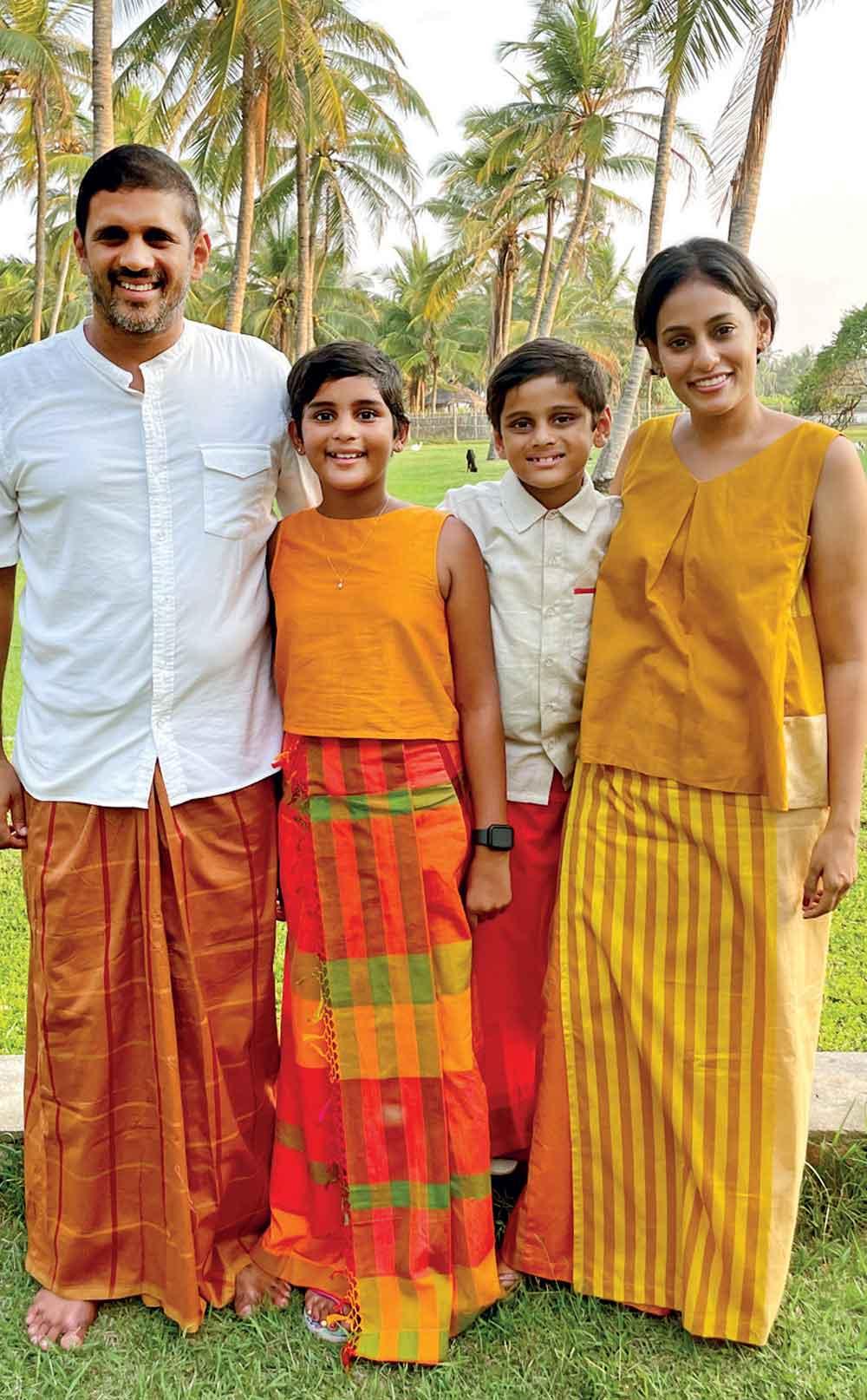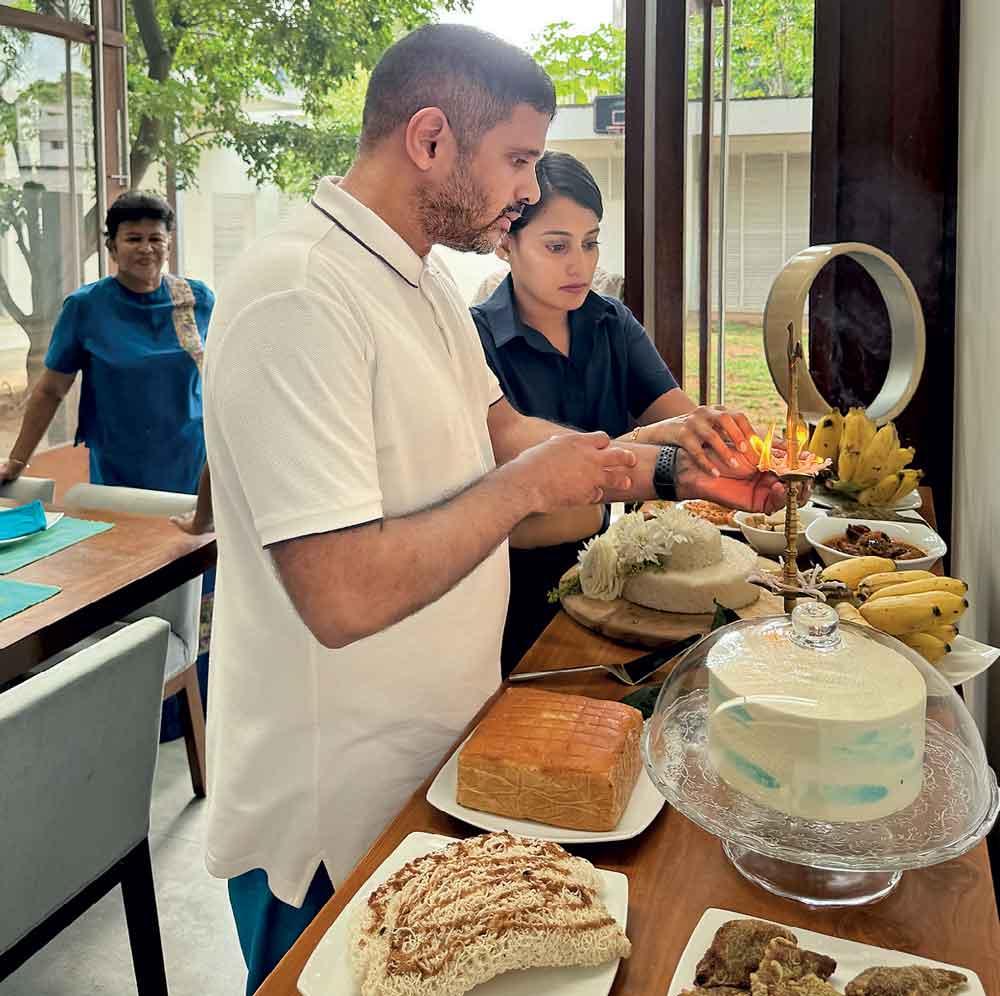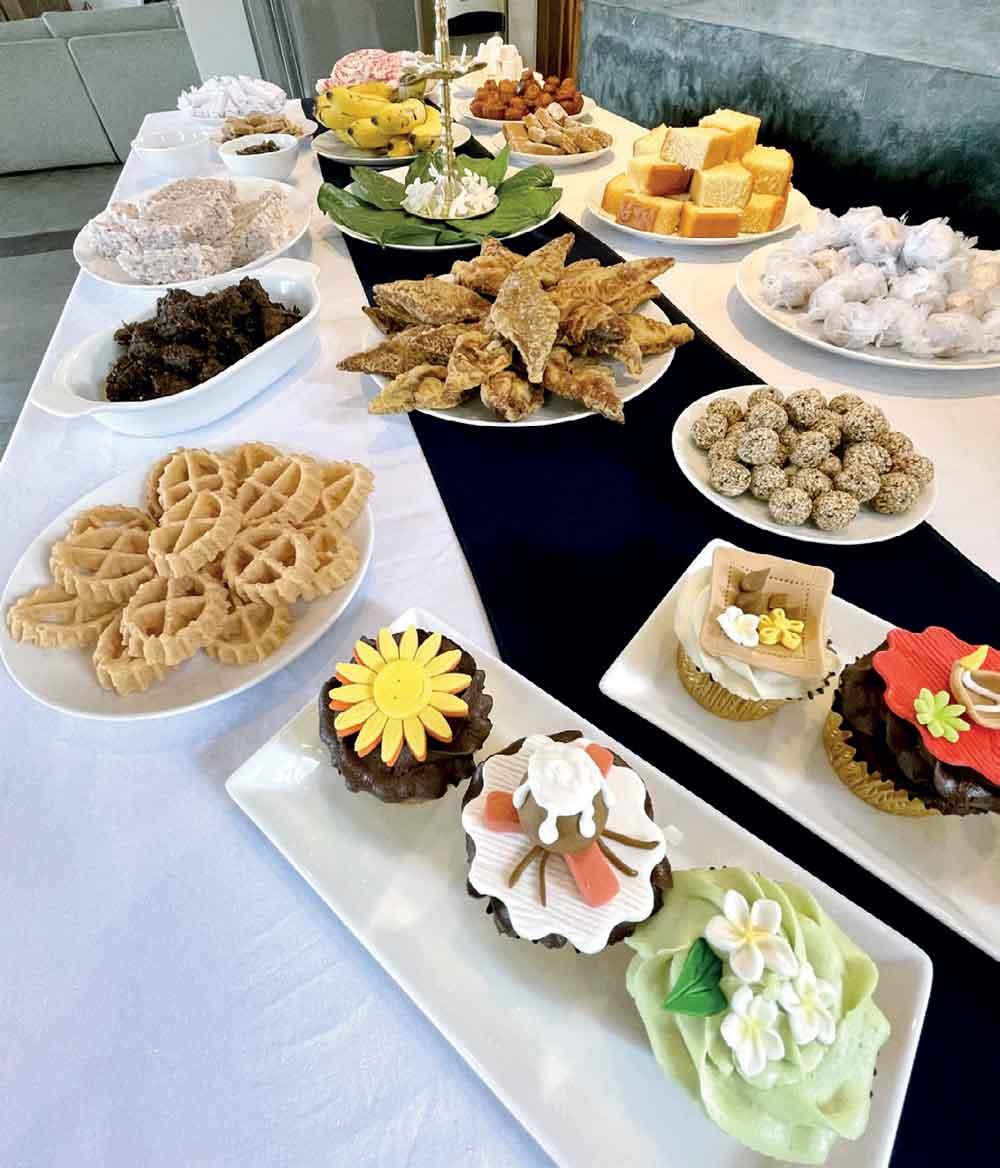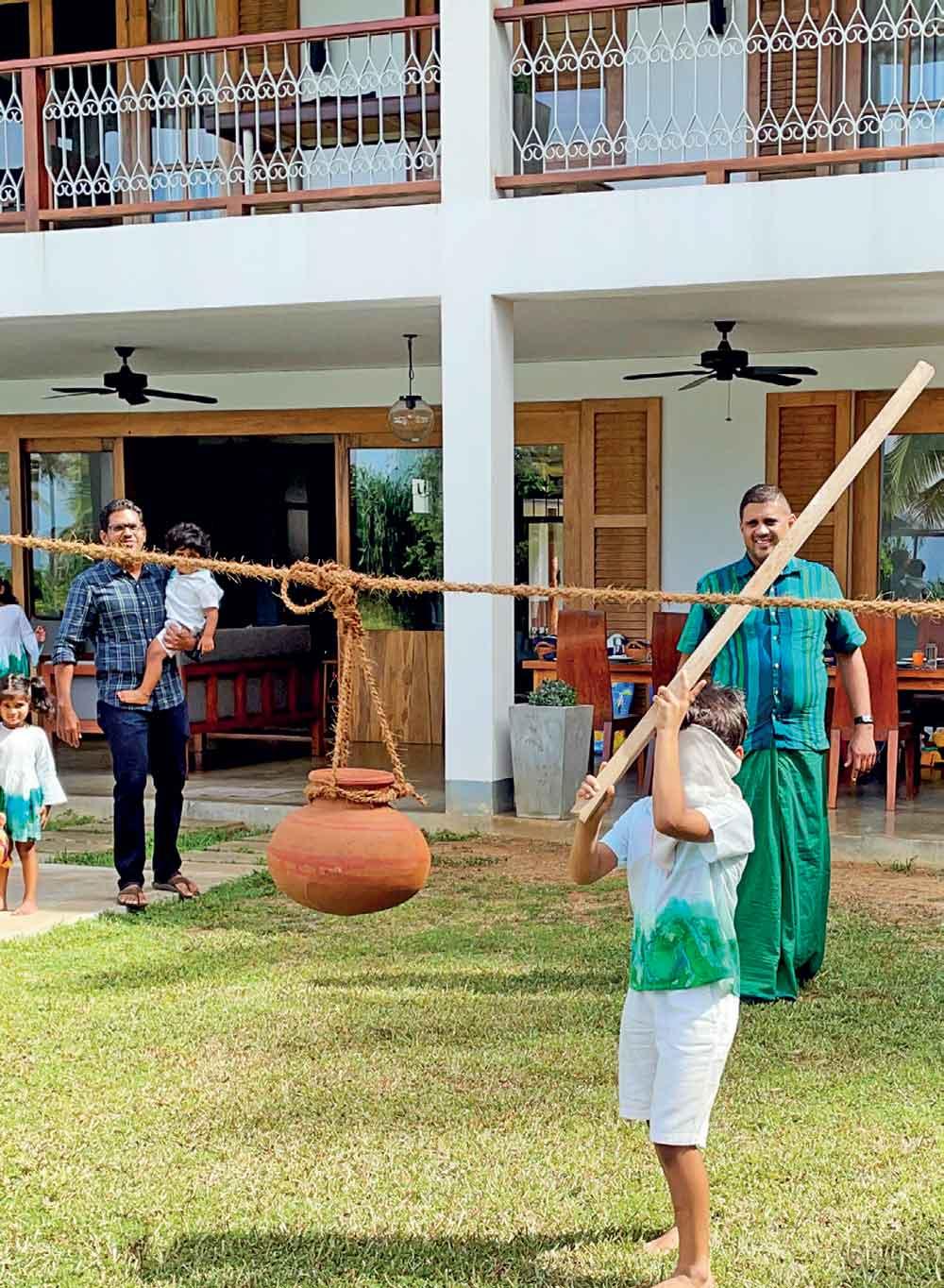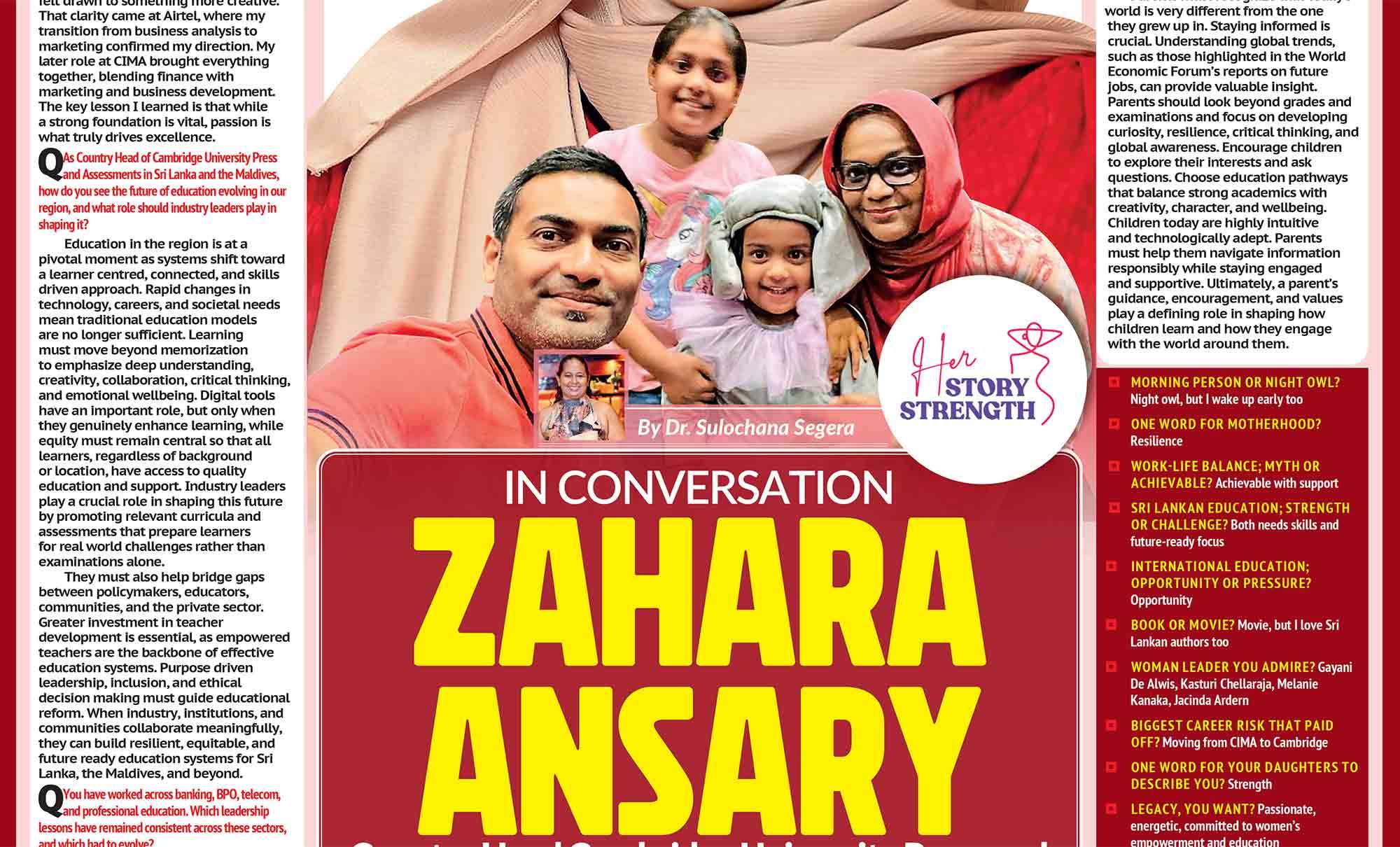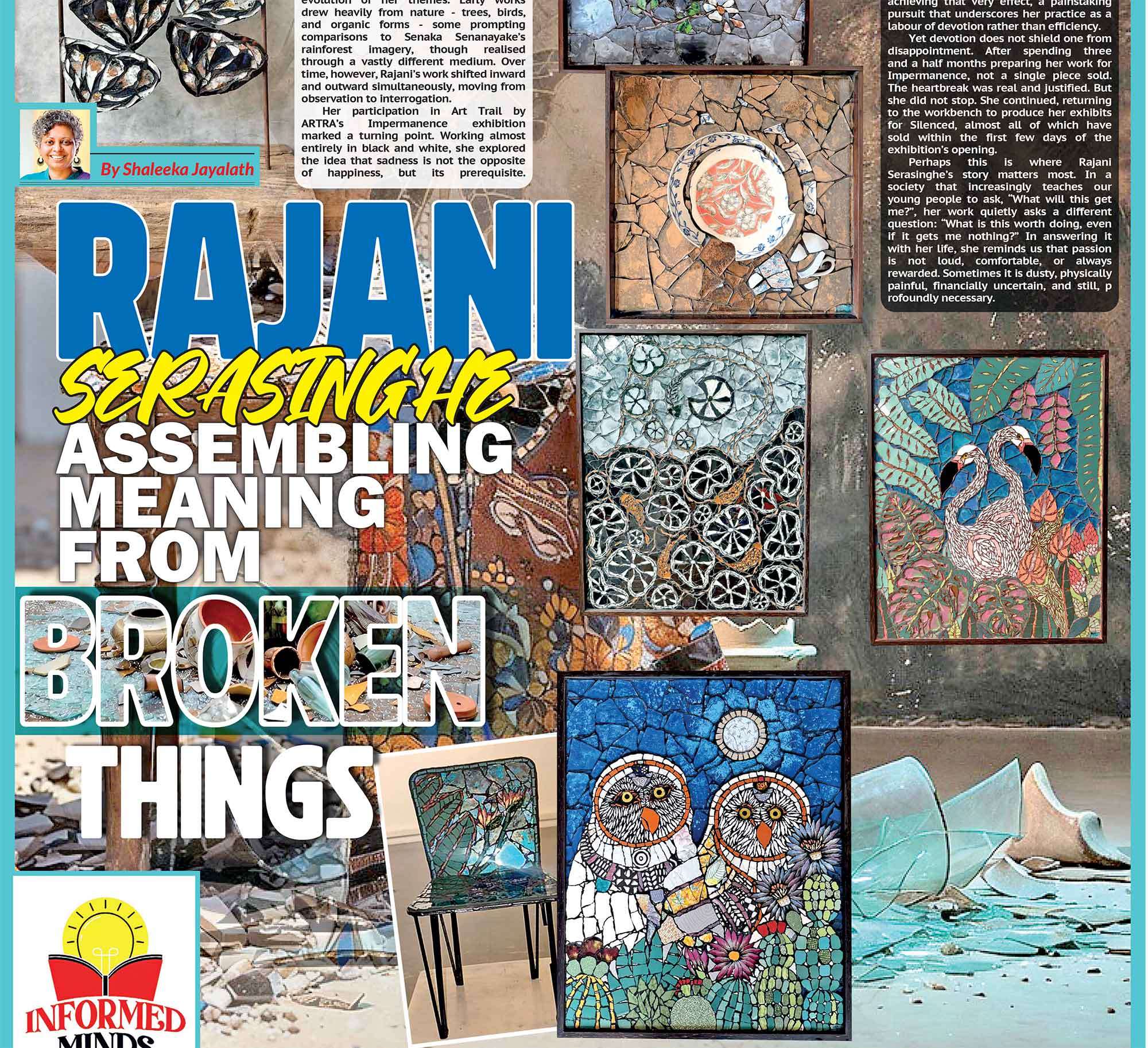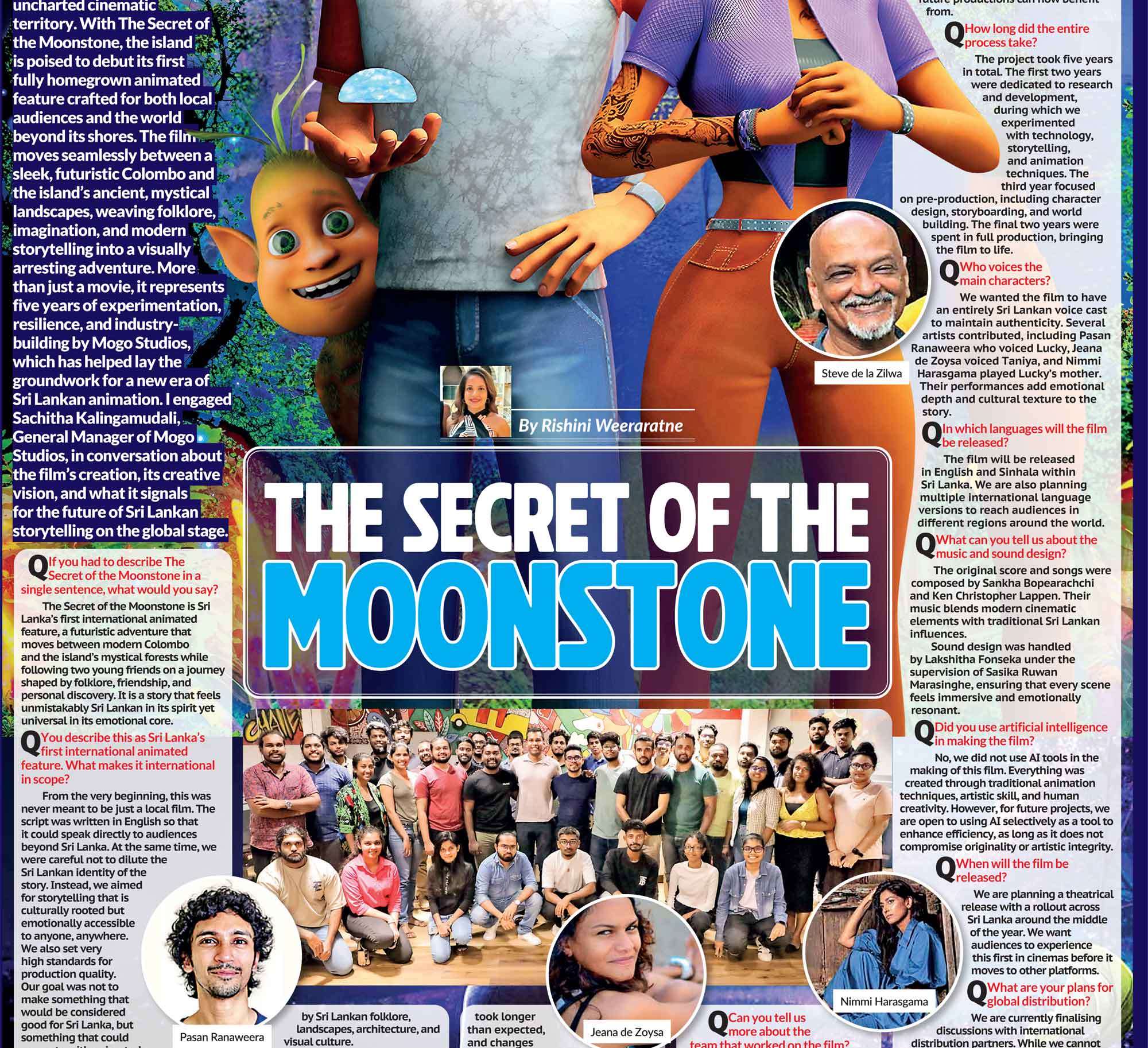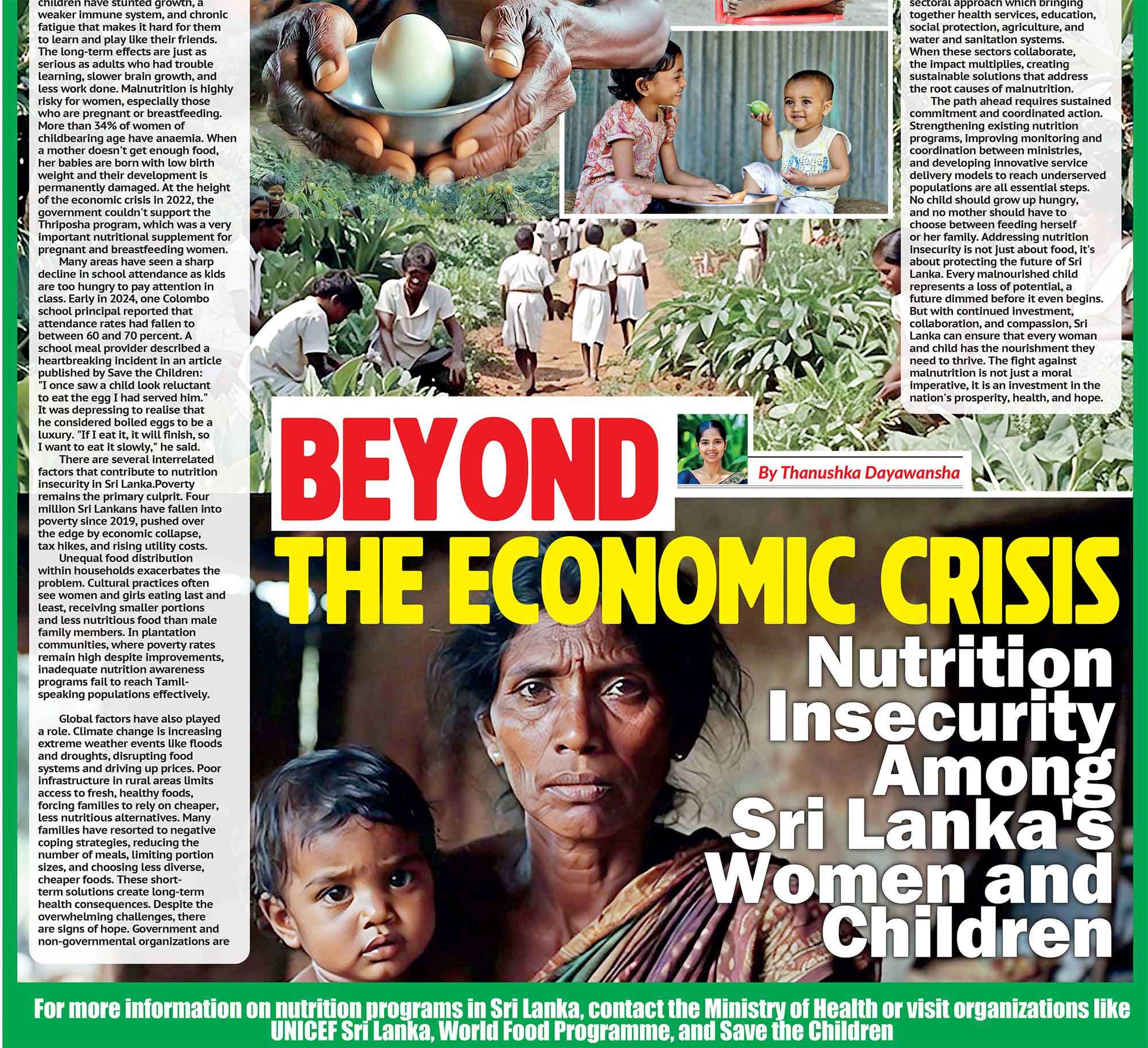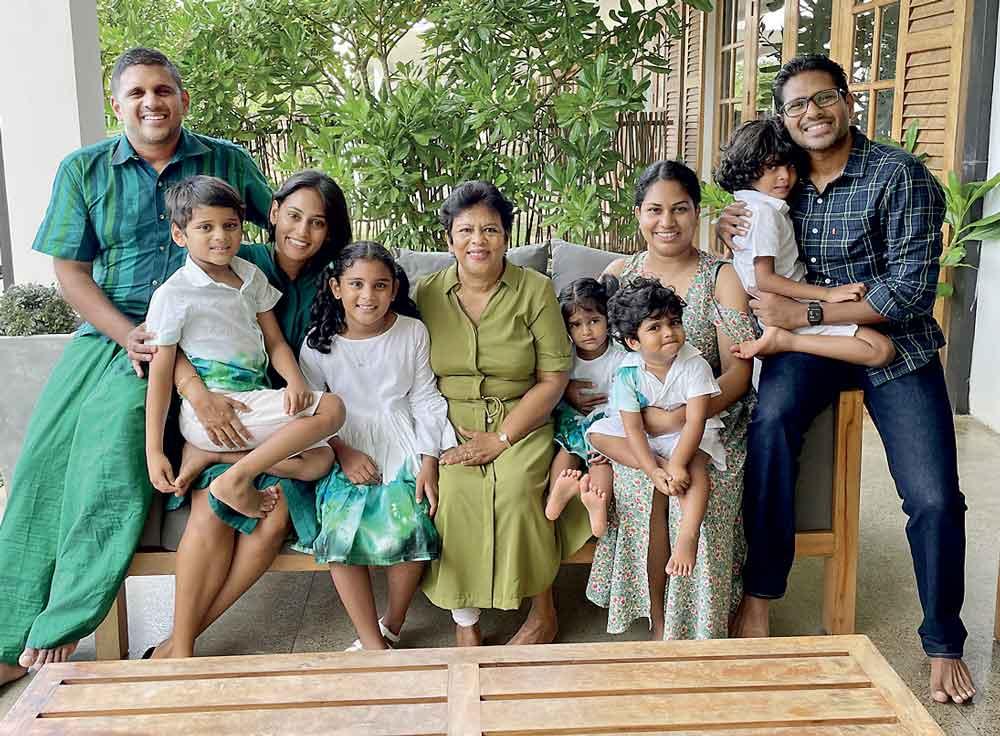
The Immediate Family
Sinhala and Tamil New Year, Avurudu, is far more than an astrological transition. It is the heartbeat of Sri Lankan culture, a cherished time when the entire nation slows down to honour age-old traditions, reconnect with loved ones, and usher in prosperity and unity. For both Sinhala and Tamil communities, Avurudu is a vibrant blend of ritual and celebration, where boiling milk, lighting the hearth, preparing sweetmeats, and playing traditional games are rich with symbolic meaning. It’s a time when generations gather under one roof; elders pass on wisdom, children take part in timeless customs, and homes brim with laughter, blessings, and the familiar aroma of festive treats. In the rush of modern life, Avurudu offers a meaningful pause; a moment to reflect, reset, and remember the values that truly matter. In this conversation with Vileshka Wijegunawardena, Director of Spring & Summer, we explore how she and her family celebrate the season and keep its traditions alive.
Q How do you usually celebrate Sinhala and Tamil New Year?
Avurudu, to me, is first and foremost about family. It’s one of the few times in the year where we deliberately pause everything else, work, deadlines, devices, and just reconnect with one another. With the children on school holidays and most businesses closing for the season, it gives our entire household a rare and precious opportunity to slow down and be truly present. That’s something I really treasure. From the moment the nonagathe begins, there’s a shift in energy. The house becomes more relaxed yet festive. We all get involved in the preparations, from cleaning the home to arranging flowers and preparing sweetmeats. I love that it’s not just about the celebration itself but about the lead-up to it, too. It’s this shared experience, rooted in tradition and love, that makes Avurudu so meaningful for us. It’s not just another holiday; it’s a time of reconnection, reflection, and realignment.
It was my mother-in-law who first introduced me to the full depth and detail of Avurudu customs
Q What are some traditions that your family follows during the New Year?
We’re very particular about observing all the traditional customs and auspicious timings. That includes everything from lighting the hearth at the right moment, to offering the first meal, to performing the ganu denu (the exchange of money and gifts) as a symbol of prosperity and goodwill. I believe these rituals are so important, not only for their spiritual and cultural significance, but because they provide a strong foundation for our children to understand where they come from. After all the formal customs are observed, we move on to the fun side of things! Traditional Avurudu games are a staple in our celebrations. The whole family takes part, and that lively, playful spirit keeps the essence of Avurudu alive for the younger generation. It’s beautiful how the festival is such a balanced mix of reverence and joy.
Vileshka, Dulan, Aadhya and Aadhiv
Q How do you balance traditional customs with modern ways of celebrating?
To me, there’s no conflict between tradition and modernity, they can coexist beautifully. The key is to integrate traditions into our lifestyle rather than treating them as outdated or inconvenient. For instance, even if we’re pressed for time or resources, we still make the effort to observe the key rituals. And with technology, it’s even easier to learn and stay informed about things like auspicious timings or traditional recipes. I think when children see their parents valuing and living these customs, they naturally begin to appreciate them too. It’s not about clinging rigidly to the past, but about keeping the essence alive while embracing the present. That’s how traditions evolve meaningfully.
Q Do you take part in any New Year games or cultural activities? If so, which ones?
Yes, and this is one of the highlights for our family! Once the formal customs are done, we shift gears into full-on fun mode. We always make time for traditional Avurudu games. Kana Mutti, where you try to break a clay pot while blindfolded, is a classic favourite.
Then there’s the Lime and Spoon race, which never fails to bring out the competitive spirit in the family! Aliyata Aha Thabeema, pinning the eye on the elephant, is another crowd pleaser, especially with the younger kids. These games bring out so much laughter, and it’s incredible how they bond everyone, regardless of age. It’s that rare blend of culture and play that makes the celebrations feel whole.
Q What is your favorite sweet treat to enjoy during the New Year celebrations?
Without hesitation, Kavum! It’s soft, subtly sweet, and wonderfully nostalgic. I always say that you haven’t truly experienced Avurudu unless you’ve had a bite of freshly made Kavum. There’s something so comforting about it, it reminds me of everything the season stands for: warmth, tradition, and the simple pleasures of life. I have to admit, I’m definitely the first to sneak one off the tray while they’re still cooling.
Q Are there any childhood memories of New Year celebrations that stand out to you?
Growing up, Avurudu wasn’t something we celebrated in a big way at home. So, when I got married and was introduced to the full depth of the celebration through my husband’s family, it opened up a whole new world for me. It was fascinating to see how structured yet joyful it was, from the timing of each activity to the significance behind each ritual. Over the years, it’s become one of the most meaningful traditions in my life. Now, the memories that stand out are the ones we’re creating with our children. Watching them take part in these rituals, seeing their excitement and curiosity; it’s truly heart-warming. Those are the memories that will stay with me forever.
Q Who introduced you to these traditions, and have you passed them on to others?
It was my mother-in-law who first introduced me to the full depth and detail of Avurudu customs. I’m so grateful for that because she took the time to not just explain, but to show me how it’s done, with intention and heart. Over time, those rituals became part of my own rhythm. Now, they’re not something we just ‘do for the season’- they’re truly embedded in our way of celebrating. My children have grown up watching and participating in every part of it, from boiling the milk to playing games in the garden.
I’ve found that involving them actively, letting them help, ask questions, and even lead certain tasks, helps them connect with it far more deeply than just being told what to do. Traditions are best passed down through living them, not just teaching them.
Q Do you prepare any special dishes for the New Year? If so, which ones?
Yes, and this part is one of my personal favourites. Kavum and Kokis are absolute must-haves in our home during Avurudu. We make them fresh every year; no shortcuts. The process of preparing these sweet treats has turned into a bit of a family ritual on its own. The kids are always eager to lend a hand, especially when it comes to mixing the batter or shaping the Kokis with the mould. Of course, some of the batter magically disappears during the process thanks to their sneaky little fingers! But that’s the joy of it, the mess, the laughter, the smells filling up the kitchen. It’s not just about preparing food; it’s about the memories we create while doing it. That’s what makes it so special.
From the moment the nonagathe begins, there’s a shift in energy. The house becomes more relaxed yet festive
Q Have you adapted or created any new traditions of your own for the celebration?
We haven’t felt the need to create new traditions because the existing ones are so rich and meaningful. Every ritual, from the boiling of milk to the first transaction of the year, carries a purpose and a deep-rooted cultural value. Sri Lanka is unique in that an entire nation observes these customs in near unison; it’s quite remarkable. That collective participation is powerful. What we do focus on is understanding the meaning behind each tradition and making sure our children do too. It’s about experiencing them, not just performing them. That way, even if they one day adapt the rituals to suit their own lives, they’ll carry the essence with them.
Q What does Sinhala and Tamil New Year mean to you personally?
To me, Avurudu is about connection; connection to our culture, to our families, and ultimately, to ourselves. It’s one of the few times in the year when the entire country moves in harmony, pausing together, celebrating together, reflecting together. That sense of unity is very powerful. It also reminds me of the strength of our traditions and the beauty of passing them down. It’s about knowing who you are, where you come from, and sharing that joy and pride with the next generation. More than anything, Avurudu feels like a spiritual and emotional reset, a reminder to live with intention, gratitude, and love.

